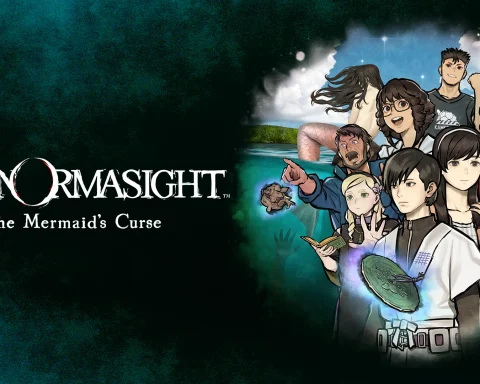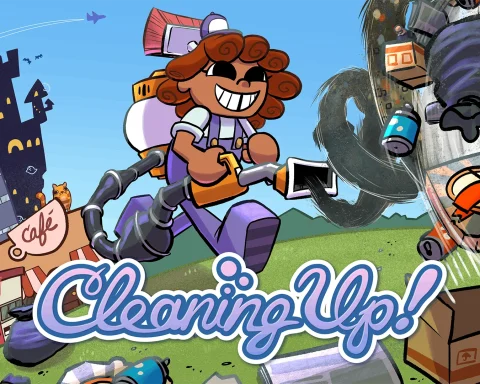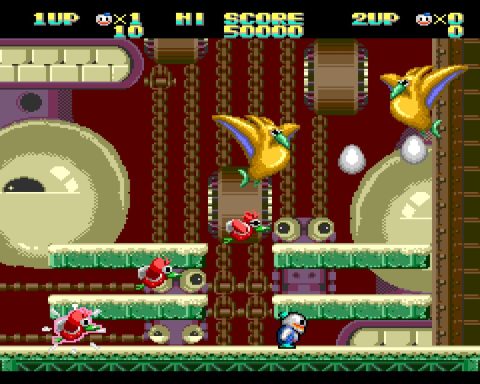I’m not sure there’s ever a precisely right time to release a “Eurojank” RPG, but I certainly don’t think that Elex II benefits from being released a few days after Elden Ring and Horizon: Forbidden West. There are going to be people that play one after the other, or any combination of them in parallel, as they do appeal to similar audiences as each is an open world, western-style RPG, but where Elden Ring and Horizon are both polished to an almost inhuman degree, Elex II is… well, it’s the precise opposite of that.
I haven’t experienced any game-breaking bugs at this point, but I would be very surprised if some don’t exist. It’s just that kind of game, and it does feel like masking tape and cotton wool is holding it together in places. Elex II is filled with weird quirks abound, there are plenty of minor bugs and irritants, and it suffers from a lack of polish in everything from the character design to the user interface. This all conspires to make this experience a difficult one to love out of the gates. It also doesn’t help that the narrative in the first ten hours or so is almost unfathomable to anyone who didn’t play the first Elex… and even then, it’s a struggle to remember all the assumed knowledge that the sequel has going on here. You’ll meet familiar characters again, be introduced to the main narrative antagonist (a race of invading aliens) AND be infected with a debilitating and progressive disease that has no known cure, all the while having people yell at you about being a saviour and have faction names like “Albs,” “Berserkers,” “Merckens” and so on thrown at you with as much explanation as I’ve given in this review (i.e. none). All of this happens at such a rate and with character interactions that are often contradictory or have serious gaps in the logic flow, and you’ll be left wondering if you’re playing a parody of the genre rather than an earnest attempt at it.
It doesn’t get better when you start exploring. At first, you’re going to be so underpowered that, despite being in an open world, if you go somewhere you’re not meant to, you’re going to get squished by a dinosaur or troll or something (the aliens themselves won’t re-appear for a long time, but that’s mostly because you’re going to struggle with the common mutant rats and chickens at first). Quest markers for the first dozen or so missions that are thrown at you will tell you that you can go all over the place, but in reality, Elex II is incredibly linear at first, and there’s only one real pathway and sequence of missions that you’re going to be able to realistically challenge.
It’s an ugly start, even by the standards of Eurojank, but then things start to click. Your character becomes more powerful and suddenly the depth and freedom of the quest system shifts to become a delight of possibilities. The narrative settles down and starts to become cohesive and coherent. You start visiting some vividly exotic locations, and the enemies that you fight shift from being those mutant chickens to the much more interesting factional forces and aliens. Elex II is a massive, wildly ambitious game, and while the developers and Piranha Bytes clearly had no idea how to get it started, once it flows it becomes incredibly difficult to put the controller down. The combat never has the fluidity or excitement of… well, Elden Ring, the graphics look like something that BioWare would have produced two generations ago, and the quest plotlines are hardly going to redefine the genre like The Witcher 3’s did, but Elex II still clicks for the kind of hardcore RPG fans that it was designed for, and that’s purely because it has such an earnest quality about it.
It is this quality that makes Elex II surprising and unpredictable. Things happen in this game that you won’t see coming and, thus, you’ll play on to see what happens next. From the morality system responding differently to your decisions than you might expect, through to the placement of enemies and blend of quests being offbeat with convention, there is a consistency within Elex that allows you to play within it, but it also doesn’t play by the rules, and for people that have played too many RPGs over the years, that’s a nice quality to have. I liked not knowing when I was going to find another teleporter pad, or whether I was going to round a corner and run into something monstrous that would flatten me and wipe out an hour of progress (or more). That felt authentic to the deatly apocalyptic setting that my hero-dude was meant to be struggling within, and kept me on my toes and careful with my progress.
That’s not to say I didn’t find elements of Elex II irritating. The bugs and narrative quirks I grew accustomed to, but the levelling system is a right pain and never improves. When you level up you get attribute points that can be assigned easily enough, but you also get AP – ability points – that are meant to be spent to learn new abilities and boost your character’s capabilities in everything from melee and ranged combat, to negotiation, lock picking and stealth. However, before you can train in a skill you need to first find someone in the world that can train you. This means that, particularly in the early part of Elex II, you’re trying to make mental note of every locked chest you have to pass on until you can find someone that can actually teach you lock picking skills. Or that you need to use mundane weapons for an age before you can start training to actually use the more powerful stuff you’ve got sitting in your inventory. Having to teleport all over the world with each level up to find the right person to train you is nonsense busywork (though, of course, the idea of needing to find an expert to learn a skill is much more authentic than just having new abilities go “ding” into your avatar’s head when they level up).
– Matt S.
Editor-in-Chief












